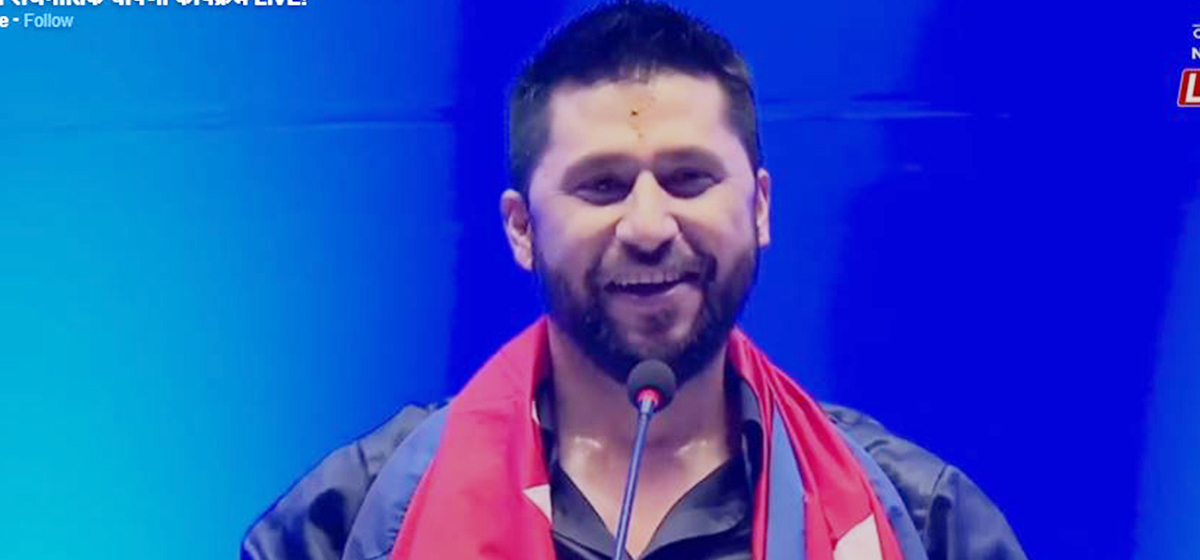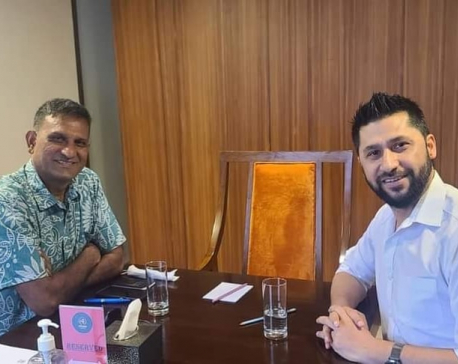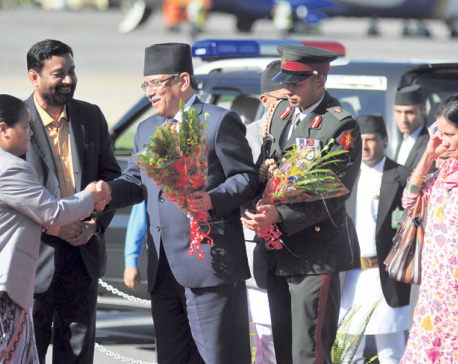
OR
#OPINION

Now, the word “thug” is synonymous to cooperative business, if not the image of a specific political leader.
The country has consumed seven constitutions within 70 years, giving a life expectancy of 10 years per constitution. With the new Constitution in 2015, as we approach 2025, are we poised for a new one?
A person is innocent until proven guilty. This is the dictum of the law. However, by deterring investigation, one cannot establish his or her innocence. The more one runs away from investigation, greater the chance that something fishy is taking place underneath.
On 16 May, with the near physical scuffle between the MPs of the Nepali Congress (NC) and the CPN-UML inside the parliament, Nepal’s politics took a different turn. We may debate who is responsible for the incident, but the unfolding of these events does not bode well for Nepali politics.
“The parliament is polarized into two camps - one seeking to protect the thugs of the cooperatives and the other demanding action against them,” according to Gagan Thapa, NC Secretary-General, who said this to the media in a press conference hurriedly organized after the incident.
As a pressure tactic, NC is teaming up with opposition forces inside the parliament. This is expected to further polarize an already divided Nepali politics. The party is demanding the formation of a parliamentary investigation committee as a minimum condition for any talks related to opening up of the parliamentary sessions.
Meanwhile, after the incident, RSP is determined to thwart any such move. Earlier, they had agreed to form a committee, albeit, with a vague mandate, without implicating their president. NC wants committee ToR to be specifically drawn to investigate possible frauds committed by Ravi Lamichhane, the RSP president, who happens to be the deputy prime minister and home minister in the incumbent government.
Prime Minister or Mister Uthal-Puthal, as he likes to call himself, is badly squeezed by the tug-of-war between two big political parties. When elephants fight or make love, it is the grass that gets trampled. So far, his dilly-dallying tactics to consent forming an investigation committee has, literally, brought this situation. He cannot say “yes” to the committee. This basically means RSP pulling out and toppling his wobbling coalition government. He cannot say “no”. This means further parliamentary imbroglio at the time of budget preparation.
The tirade between the NC and UML/RSP has, literally, derogated the meaning and significance of cooperatives. In the constitution, public, private and cooperative sectors are regarded as the trinity of our socialism-oriented economy. The image and conditions of the public and private sectors are well known. The ongoing debate has reduced cooperatives to a business of deceit and thuggery. The experts in the field say, “there might be 31,000 cooperatives established all over the country, 2-3000 cooperatives may be doing hanky-panky business, but the issue has brought disrepute to the entire sector. Now, the word “thug” is synonymous to cooperative business, if not the image of a specific political leader.
Over the last couple of months, anyone reading the news related to the cooperative scandal can detect a kind of pattern. With the media leaking of the scandal, there were efforts, at the government level to hide and suppress the news, give clean chit, and even counter the argument by saying it as a ploy to defame RSP leader because he refused the NC offer for prime ministership. One can bet, even in dreams, that such refutation is not possible. There were also charges that the so-and-so culprit evaded the country under the protection of the previous government. One can clearly detect the misuse or abuse of state power to settle political scores. Forget about banking-sector Dhamala, even a child will not buy an argument like “cheque deposited but not cashed”. And the cheque involved millions of rupees.
Second, media trials or rather social media trials were made by demanding the accused be given a rightful opportunity to clarify his positions in the parliament. The democratic credentials of the NC were questioned. In turn, the party was ready for such a clarification, however, it demanded that the party should be allowed to respond, in case the clarifications turn out to be unsatisfactory. Nobody really understands why the NC’s demands were refused.
Third, the parties agreed on the formation of an investigation committee but disagreed on the ToR. RSP agreed for a generic ToR, seeking to dilute the whole issue. The NC demanded it to be specific - investigating possible fraud committed by the RSP president.
Things took a nasty turn with the Supreme Court releasing a full verdict on the Giri-Bandhu Tea Estate land grab scam. The NC took this opportunity to corner the chief designer, the mastermind behind Prachanda’s coalition government, that is, no other person than the chairman of the CPN-UML, KP Sharma Oli. This seems to have infuriated him. He seems to have taken it personally. Given the intensity of verbal charges and counter-charges between the political leaders, it gives the impression that everyone is readying to take a dig at past graveyards.
Meanwhile, the prime minister has decided to stand for parliamentary test, for the fourth time, during his 17-month tenure. It could be a ploy to distract public attention or could even backfire given the wafer-thin majority in the coalition. It is difficult to read the political undercurrents in the country. With provincial governments in disarray, visible discord within and between political parties, and increasing demands for constitutional reforms, predicting the unpredictable is a distinct feature of Nepali politics
The country has consumed seven constitutions within 70 years, giving a life expectancy of 10 years per constitution. With the new Constitution in 2015, as we approach 2025, are we poised for a new one?
You May Like This

Ravi Lamichhane and Ramesh Kharel discuss forging cooperation in upcoming elections
KATHMANDU, June 24: Rastriya Swatantra Party President Ravi Lamichhane and Nepal Good Governance Party President Ramesh Kharel have held a... Read More...

India welcomed effort to take all on board Constitution: PM
KATHMANDU, Sept 18: Prime Minister Pushpa Kamal Dahal has said that India appreciates Nepal’s efforts to bring the dissidents on board... Read More...

Speaker for resolving problems by amending constitution
LALITPUR, Aug 18: Speaker Onsari Gharti has said people from every caste, religion and community in the country are capable... Read More...







Just In
- NRB to provide collateral-free loans to foreign employment seekers
- NEB to publish Grade 12 results next week
- Body handover begins; Relatives remain dissatisfied with insurance, compensation amount
- NC defers its plan to join Koshi govt
- NRB to review microfinance loan interest rate
- 134 dead in floods and landslides since onset of monsoon this year
- Mahakali Irrigation Project sees only 22 percent physical progress in 18 years
- Singapore now holds world's most powerful passport; Nepal stays at 98th












Leave A Comment